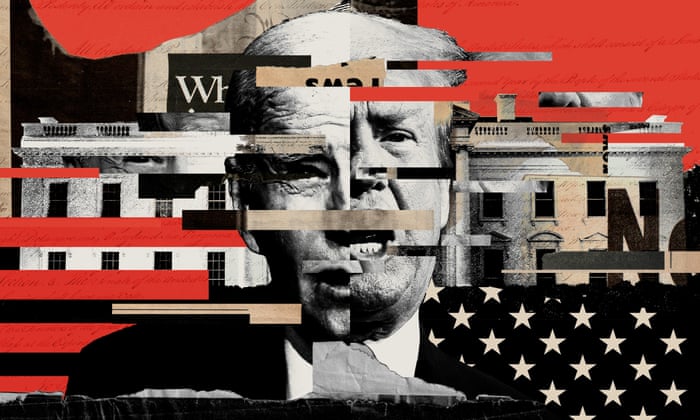A Grand Scheme To Oppose Donald Trump*
One of the most perennially true political sound bites must surely be Bill Clinton's memorable line, “It's the economy, stupid.” If, and pardon the irony, a man of George Bush the Elder’s intellectual caliber refused to recognize that the economy, and not some benign foreign policy achievements, would decide the fate of his presidency, he was bound for the electoral exit.
Today, the classic refrain requires a refresh to accommodate another quietly stubborn factor, and better aid our understanding of the strategic logic at work in American politics. For it is not only the state of the economy, but also the substantial Donald Trump effect, that is driving Joe Biden's actions. The remarkably bold (at least by U.S. standards) direct intervention of a sitting president in an industrial labor relations dispute, on behalf of the automobile workers union, is not just about campaigning for fair wages, but above all, about winning over Trump's voter base, and more fundamentally, securing the survival of American democracy.
Without question, two factors massively contributed to Trump's success: The first was the free fall of middle- and working-class American living standards following the 2008 recession, and the second, the populist discourse of lies that replaced the U.S. public's distaste for global leadership with a high-fat diet of external “enemies,” including immigrants, bad wars and China. In the early days of its administration, while still reeling in shock after the storming of the Capitol, Biden's team analyzed the socioeconomic pyramid and drew the conclusion that the only way to prevent a Trump comeback, and the ensuing collapse of the U.S. constitutional order, would be to convince the “Forgotten Majority of Americans” that the government intended to protect both their backs and their wallets.
The administration is doing a great deal for the workforce, but its efforts have yet to get through.
In the current quarter alone, the U.S. economy grew by three percentage points, and the public debt shrank on the back of generous tax breaks and one-off giveaways. These measures coupled with a huge infrastructure program — on a scale likely not seen since Franklin D. Roosevelt's New Deal — bolstered the labor market. So far, however, the money has not really filtered down to lower socioeconomic groups. Levels of income growth and wealth distribution — in fact, all the key indicators — attest to just how tough the challenge to level up working-class groups remains. As such, Biden's stand in solidarity with striking auto workers is designed to signal to the companies that it is high time they stepped up to the plate and treated their employees fairly.
The fate of the second part of Biden's four-year plan to defeat Trumpism will be decided this weekend, if the Republican Party's radical right wing moves to block the budget's passage through Congress, and thereby brings the most important element of the administration’s foreign policy to a halt: the funding of military aid for Ukraine. While Biden's foreign policy has managed to maintain the lowest of profiles, it is nonetheless burning through funds apace, and quietly ensuring that the U.S.' regional focus shifts away from the Pacific back toward Europe. A sizeable chunk of Biden's debt-financed stimulus is being funneled into federal state apparatus, notably the military.
Increasing its influence abroad, without having provoked a backlash at home, can certainly be considered one of this government's successes. Undoubtedly, it could only restore this outward-facing global role in a softly-softly, low-key manner, in order to keep domestic political opposition at bay amid the unremitting, staunchly isolationist mood. Biden's two-pronged strategy — combining debt-financed economic nationalism with quiet interventionism abroad — is slowly gaining traction. It has the target-date of Election Day 2024, and one Donald Trump, in its sights.
*Editor’s Note: This article is available in its original language with a paid subscription.


:quality(70)/cloudfront-eu-central-1.images.arcpublishing.com/thenational/URK4JC36OFS3UWNS3ZMCBCEYSE.jpg)